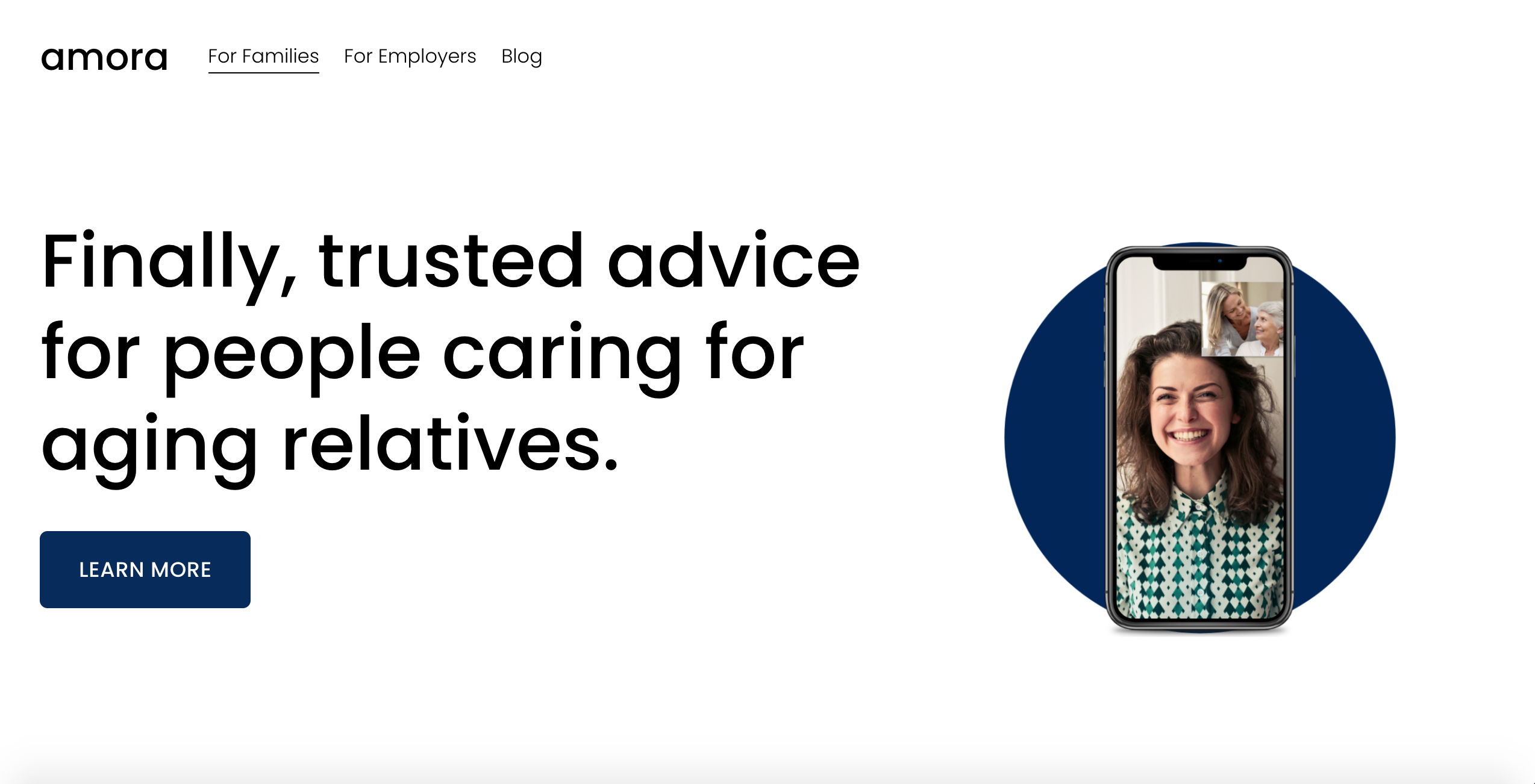Two current graduate students have launched an organization to educate and support adults caring for aging relatives, especially as the COVID-19 pandemic reshapes the nature of elder care.
Tori Seidenstein M.B.A. ’21 and Sarah Jacobson B.A. ’14 M.S. ’14 M.B.A. ’21 created Amora, which that pairs new caregivers with coaches who help them navigate housing, financial and medical needs.
Amora is targeted specifically to help parents, juggling their own children and careers, create a plan for their aging family members. Virtual sessions led by geriatric care manager Janie Shelburn allow individuals to receive the care and guidance they need through the aging process.
Amora’s model is unique — it is entirely online, according to its founders.
“All of our sessions are done virtually over Zoom,” Jacobson said. “One, because that’s the world we live in; but two, it’s also much more convenient. We want professional moms who are juggling work and kids to have access to a convenient tool that works in their day.”
Both Seidenstein and Jacobson have both had personal experience watching their family members struggle to care for their aging relatives.
Describing the process as “overwhelming” and “isolating,” the two realized how universal the challenges of caring for aging relatives could be. Even after exhausting available online resources, Jacobson and Seidenstein were still left with questions surrounding living arrangements, medical needs, finances and emotional well-being.
“Everyone feels alone when it comes to their aging parents. It’s a very private matter that some think others aren’t going through,” Jacobson said. “And that’s just not the case. Everyone will go through this process at some point in their life, and I think talking about it and leaning on each other for support is what is important.”
Amora has adapted to meet the new needs that accompany caring for aging parents during a pandemic — many additional tools have been added to help individuals through this time: no-contact grocery delivery, assistance if an aging parent needs to move and alerts if there is a COVID-19 outbreak in the parent’s facility or town.
The pandemic has restricted family members’ access to their older relatives — thus trying to coordinate the care they need from afar becomes significantly harder, according Seidenstein and Jacobson.
“People don’t stop aging just because there’s a pandemic. They continue to experience all the challenges that they naturally would — it’s just now there are a million more constraints,” Seidenstein said.
With her mother living alone in Japan and her father’s unexpected passing in January, one woman — who requested anonymity to protect her mother’s privacy — reported that she benefited greatly from Amora. Between her mother’s diagnosis with Mild Cognitive Impairment and the coronavirus pandemic, she told The Daily it has been very difficult for her to visit and take care of her aging mother.
It was then left up to her sister, who lives closer to their mother, to take care of essential needs. Given she was already taking care of her three young children, who all transitioned to various forms of online learning, additionally taking care of her mother overwhelmed her.
Working with Amora has left this caregiver with more insight about her mother’s illness, supporting her family and managing care amid COVID-19. The organization has given her and her family “peace of mind” while dealing with her mother’s illness, she told the Daily.
“Every session feels like a combination of education and talk therapy,” the caregiver said, “where I learn more about myself, my mother’s situation, and resources to help both of us.”
An earlier version of this article incorrectly categorized Amora as a non-profit. It is a for-profit company. The Daily regrets this error.
Contact Kaitlyn Kittredge at kaitlynkittredge ‘at’ yahoo.com.
